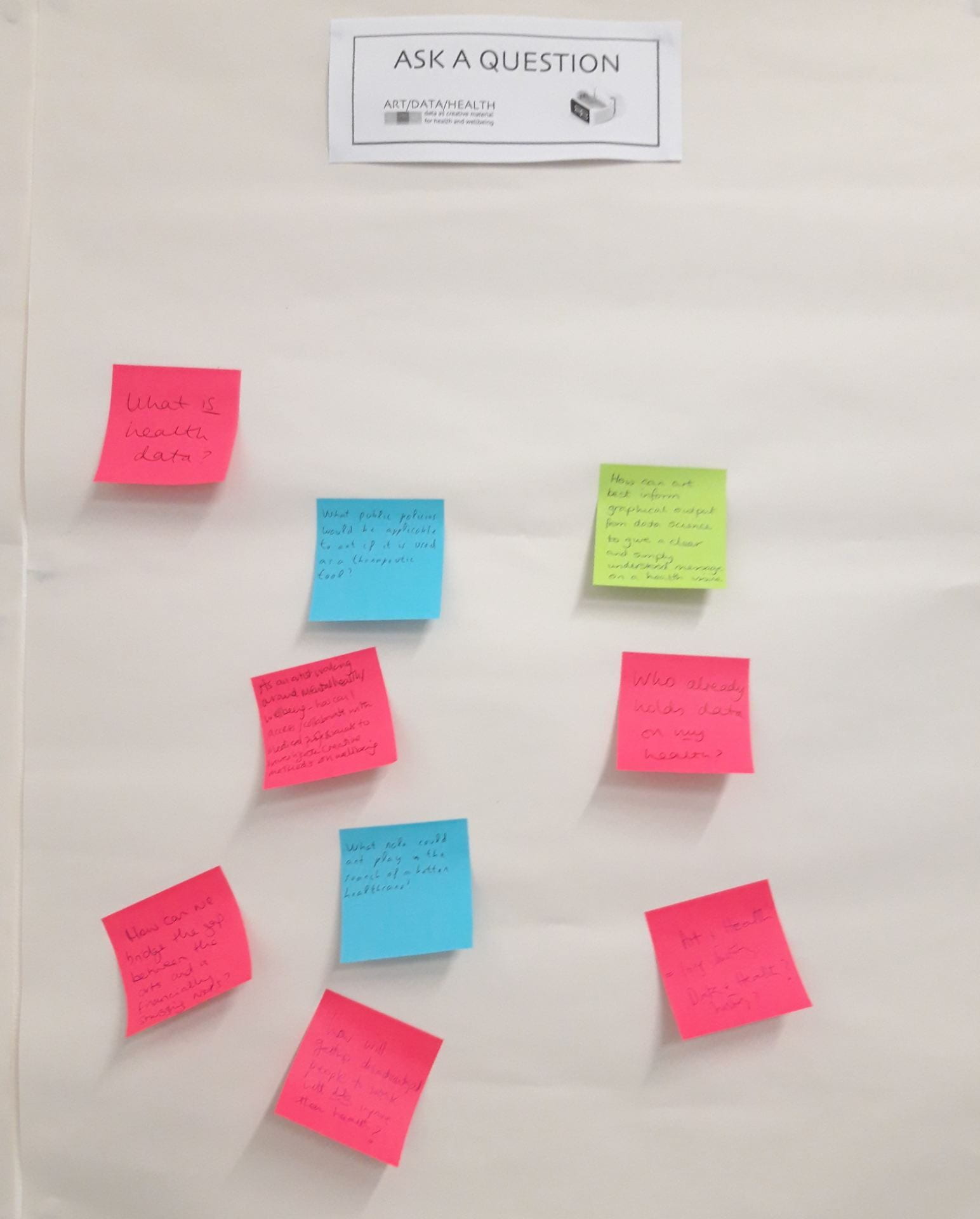On 23rd October 2019, as part of the Brighton Digital Festival, we welcomed 40 guests to our first public event Data, health and the arts: Creating space, bridging boundaries – and had a great response! Videos of each talk will be uploaded to this website shortly.
Four speakers debated the opportunities and challenges presented by digital data tools and technologies for health and wellbeing. The audience got involved, too, voting in person and on Twitter for the issues around health data which are most important to them. Coming top as opportunities were knowledge and understanding, better individual care, improved diagnosis and citizen engagement, while people saw bias and ethics, and data security, as key challenges.
We kicked things off with a talk on ‘Immersive art as therapy’ from Sarah Ticho, specialist in arts, health and immersive technology. Sarah discussed her work using Virtual Reality to explore body mapping techniques – a way in to exploring experiences of pain, emotion and allied conditions such as synaesthesia. As Sarah puts it:
“Pain and emotions are still rarely understood, and often impossible to see or measure. Using drawing, painting and collage to make these invisible experiences visible enables the indescribable to be shared with others and thereby increases the understanding of another’s subjective experience. Importantly it also provides the creator with a new perspective on their own experience. Hatsumi is a VR adaptation of the body mapping process – an arts-based research tool, which, due to its focus on embodied experience, lends itself to the exploration of bodily and psychological feelings and experience. Using 3D drawing in a virtual environment, Hatsumi is a tool to which can be used as a therapeutic intervention and to communicate and research lived experience of various health problems.”
You can watch a video about Hatsumi here.
Liz Ford from the Brighton and Sussex Medical School then took us through an overview of health data, contrasting formal health data coding with more narrative approaches. Liz pointed out how important it is to consider the differing purposes of collecting patient data – who benefits, and how?
Jo-Anne Welsh from the Oasis project, a substance misuse service for women and their children and a valued ART/DATA/HEALTH partner (see the full list of our Partners here), expanded on this question by considering the experiences of Oasis service users. Stressing the socioeconomic context to experiences of support services, she emphasised how carefully data collection must be carried out in order to avoid a situation in which we ‘hit the target and miss the point’. Jo-Anne finished by showing a film from the 2018 Oasis project ‘The Art of Attachment’, which showcases the individual stories of women experiencing substance use, family attachment, and trauma.
Finally, ART/DATA/HEALTH project lead Aristea Fotopoulou gave an overview of data science to address social issues, and outlined next steps for the ART/DATA/HEALTH project.
Audience questions
Across the evening, several themes arose: stigma and bias in data design and collection, the potential of social media for exploring and informing people about health issues, concerns around privacy and data security, the accessibility issues inherent to digital data technologies, and the potential for existing health inequalities to be exacerbated by data-focused work. A clear need was voiced for individual, qualitative, narrative stories to be part of the wider conversation about health data.
Panel Discussion
Sign up to our Newsletter (by email, on the top right of this page) to join the conversation, and to receive updates about future events and ways to get involved!







Leave a Reply